Published
on
February 26, 2021
| 6,500 views
| 1 follower
members are following updates on this item.
According to the Centers for Disease Control, someone has a heart attack in the United States every 40 seconds. Most heart attacks hit during the early morning hours between 4-10 a.m. when blood platelets are stickier and increased adrenaline released from the adrenal glands can trigger rupture of plaques in coronary arteries. Additionally, in a recent report in the cardiology journal Heart, heart incidents that occur between 6 a.m. and noon were associated with the most heart damage.
Heart disease is currently the leading cause of death for both women and men in the United States. About one in four men and one in five women die from heart disease. 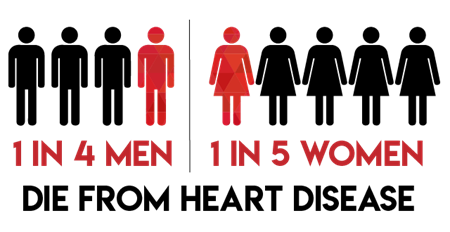 Closer to home, according to the Department of Health & Social Services heart disease is the second leading cause of death in Alaska. In 2018, heart disease claimed the lives of 799 Alaskans (512 males and 287 females). Alaska Native people have significantly higher rates of heart disease mortality (207.1 per 100,000) than white individuals (116.8) in Alaska and the disparity in these rates has been increasing over the past decade.
Closer to home, according to the Department of Health & Social Services heart disease is the second leading cause of death in Alaska. In 2018, heart disease claimed the lives of 799 Alaskans (512 males and 287 females). Alaska Native people have significantly higher rates of heart disease mortality (207.1 per 100,000) than white individuals (116.8) in Alaska and the disparity in these rates has been increasing over the past decade.
Many people believe heart attacks, strokes, and cardiac arrests “come out of the blue”, but most of them don't. They usually appear after cholesterol-rich plaque has festered for decades in arteries. Understanding risk factors, early warning signs and commonly overlooked heart disease symptoms may help you and your doctor recognize problems sooner.
Here are 7 heart symptoms you should not ignore:
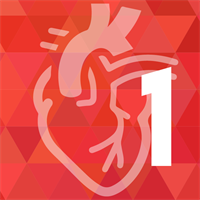 Chest pain or chest pressure. Angina is chest pain or discomfort caused when your heart muscle doesn't get enough oxygen-rich blood. It may feel like pressure or squeezing in your chest. The discomfort also can occur in your shoulders, arms, neck, jaw, or back. Angina pain may even feel like indigestion. There are two types of angina: stable and unstable. Stable angina is more predictable and only lasts for a short time. Unstable angina on the other hand may appear unexpectedly, feel more intense, last longer than just a few minutes and will require medical attention. If you are regularly feeling chest pain or pressure, it is probably a good time to get it checked out by a physician.
Chest pain or chest pressure. Angina is chest pain or discomfort caused when your heart muscle doesn't get enough oxygen-rich blood. It may feel like pressure or squeezing in your chest. The discomfort also can occur in your shoulders, arms, neck, jaw, or back. Angina pain may even feel like indigestion. There are two types of angina: stable and unstable. Stable angina is more predictable and only lasts for a short time. Unstable angina on the other hand may appear unexpectedly, feel more intense, last longer than just a few minutes and will require medical attention. If you are regularly feeling chest pain or pressure, it is probably a good time to get it checked out by a physician.
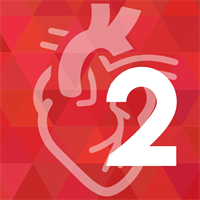 Reoccurring shortness of breath with or without exertion. Your breathing and your heart pumping blood effectively are very closely related. Your heart pumps blood so it can circulate to your tissues as well as get oxygen from your lungs. If your heart can’t pump blood well, you can feel short of breath. The shortness of breath can be sudden or gradual. Breathlessness requires immediate attention if it happens at rest, is accompanied by chest pain or pressure or if you have a history of heart disease/attacks.
Reoccurring shortness of breath with or without exertion. Your breathing and your heart pumping blood effectively are very closely related. Your heart pumps blood so it can circulate to your tissues as well as get oxygen from your lungs. If your heart can’t pump blood well, you can feel short of breath. The shortness of breath can be sudden or gradual. Breathlessness requires immediate attention if it happens at rest, is accompanied by chest pain or pressure or if you have a history of heart disease/attacks.
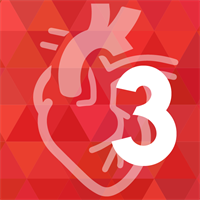 Patterns of heart palpitations, heart flutters or skipped heartbeats. Heart palpitations can range from feeling like your heart is skipping a beat to having changes in heart rhythm that can feel like your heart is pounding or throbbing. Your heart and body rely on a consistent, steady beat to best move blood throughout your body. If the beat gets out of rhythm, this could be a cause for concern. Changes in your heart’s rhythm shouldn’t be ignored, because once the heart is consistently out of rhythm, it requires medical intervention to get back into rhythm. If your palpitations are accompanied by dizziness, chest pressure, chest pain, or fainting, you should seek immediate medical attention.
Patterns of heart palpitations, heart flutters or skipped heartbeats. Heart palpitations can range from feeling like your heart is skipping a beat to having changes in heart rhythm that can feel like your heart is pounding or throbbing. Your heart and body rely on a consistent, steady beat to best move blood throughout your body. If the beat gets out of rhythm, this could be a cause for concern. Changes in your heart’s rhythm shouldn’t be ignored, because once the heart is consistently out of rhythm, it requires medical intervention to get back into rhythm. If your palpitations are accompanied by dizziness, chest pressure, chest pain, or fainting, you should seek immediate medical attention.
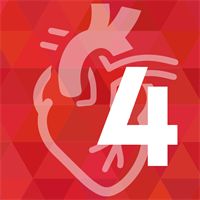 Constant tiredness or fatigue. Fatigue can be caused by many illnesses and by medicines. But a constant, new fatigue also can sometimes signal heart failure. If you often feel tired or exhausted for no reason, it could be a sign that something is wrong. Fatigue and shortness of breath are more common in women than men and may begin months before a heart attack. That’s why it’s important to see a doctor as early as possible when you experience early signs of fatigue.
Constant tiredness or fatigue. Fatigue can be caused by many illnesses and by medicines. But a constant, new fatigue also can sometimes signal heart failure. If you often feel tired or exhausted for no reason, it could be a sign that something is wrong. Fatigue and shortness of breath are more common in women than men and may begin months before a heart attack. That’s why it’s important to see a doctor as early as possible when you experience early signs of fatigue.
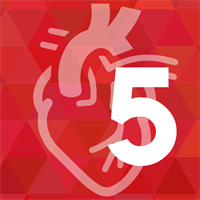 Dizziness or lightheadedness. Lightheadedness and dizziness can be caused by vertigo or another disease not related to the heart. But for some, it’s can be a symptom of an underlying heart condition. They are especially symptoms that women describe during a heart attack. This sensation is certainly not a normal feeling and shouldn’t be ignored if you experience it.
Dizziness or lightheadedness. Lightheadedness and dizziness can be caused by vertigo or another disease not related to the heart. But for some, it’s can be a symptom of an underlying heart condition. They are especially symptoms that women describe during a heart attack. This sensation is certainly not a normal feeling and shouldn’t be ignored if you experience it.
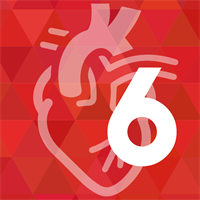 Sweating during the day and at night. Sweating more than usual — especially if you aren’t exercising or being active — could be an early warning sign of heart problems. Pumping blood through clogged arteries takes more effort from your heart, so your body sweats more to try to keep your body temperature down during the extra exertion. Women may mistake this symptom for menopause. However, if you wake up and your sheets are soaked or you cannot sleep due to your sweating, this could also be a sign of a heart problem.
Sweating during the day and at night. Sweating more than usual — especially if you aren’t exercising or being active — could be an early warning sign of heart problems. Pumping blood through clogged arteries takes more effort from your heart, so your body sweats more to try to keep your body temperature down during the extra exertion. Women may mistake this symptom for menopause. However, if you wake up and your sheets are soaked or you cannot sleep due to your sweating, this could also be a sign of a heart problem.
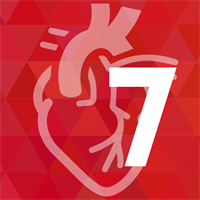 Sudden weight gain. Rapid weight gain or swelling in particular areas of the body can be due to fluid retention and may be a sign of heart failure. Weight gain of more than 2–3 pounds over 24 hours or 5 lb in a week could be a sign of heart failure. However, it is important to note that a person’s weight usually fluctuates by a few pounds over the course of a day. If your weight returns to normal and you do not have additional symptoms, the temporary increase could be due to normal bloating and fluid retention.
Sudden weight gain. Rapid weight gain or swelling in particular areas of the body can be due to fluid retention and may be a sign of heart failure. Weight gain of more than 2–3 pounds over 24 hours or 5 lb in a week could be a sign of heart failure. However, it is important to note that a person’s weight usually fluctuates by a few pounds over the course of a day. If your weight returns to normal and you do not have additional symptoms, the temporary increase could be due to normal bloating and fluid retention.
If you’re noticing one or more of these seven symptoms, please make an appointment with your primary care doctor to have your heart checked and tested. Your primary care doctor can diagnose and treat a variety of conditions. They can also help you improve heart function by working with you to create a tailored treatment plan. And if specialist help is needed, your doctor can connect you with an expert in cardiology for more testing and treatment.

Theresa Calderon is a Family Nurse Practitioner (FNP) in the Porter Heart & Vascular Center at Fairbanks Memorial Hospital. Ms. Calderon specializes in cardiovascular medicine and interventional cardiology.
Page Options